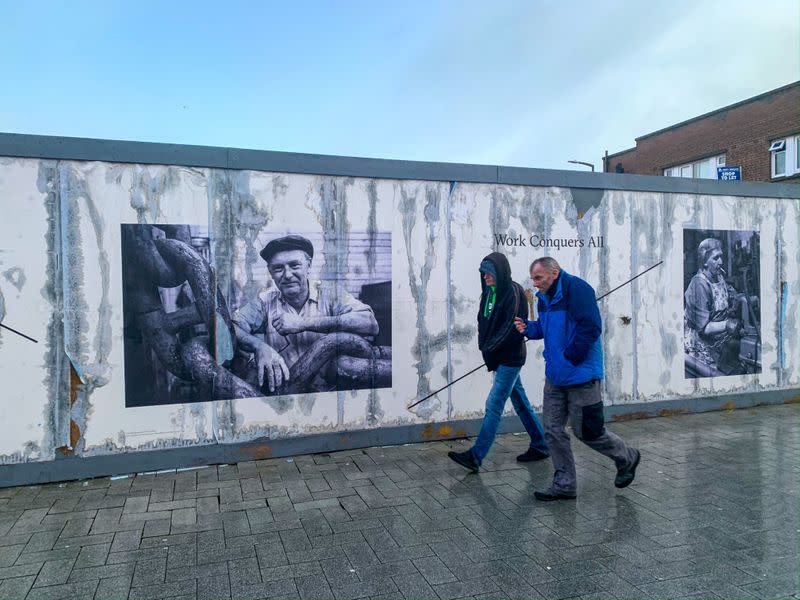Labour Party's Red Wall across England falls as voters clamour for Brexit
By Simon Evans and Emily G Roe
BURNLEY/WEST BROMWICH, England (Reuters) - Burnley is no longer a brick in Labour's Red Wall.
Electing its first Conservative Member of Parliament for 109 years, the gritty northern English town is emblematic of the pro-Brexit shock in Labour heartlands which handed Boris Johnson a majority government on Friday.
David Hughes, 48, was won over by Johnson's "Get Brexit done" mantra and backed the Conservatives after previously voting Labour.
"People wanted to get Brexit sorted and I think Boris will get it done," he said.
Burnley, where as recently as the 2015 election, the Conservatives came in fourth place, voted 67% in favour of leaving the European Union in the 2016 referendum.
A centre of the textile trade in the 19th century, Burnley's cotton mills shut down long ago and although it remains home to many manufacturing jobs -- fashion retailer Boohoo has a large distribution centre in the town -- it is ranked amongst England's most deprived areas.
Its industrial past helped make it a Labour stronghold, but across central and northern England, formerly Labour's Red Wall of safe seats, Brexit has shattered old party loyalties.
"Leave" voters baulked at Labour leader Jeremy Corbyn's policy of negotiating a new deal to leave the EU followed by a second referendum and shifted to the Conservatives, helping the party win an unexpectedly large majority in England.
Further south, near Birmingham, West Bromwich East is another constituency which fell to the Conservatives after having returned a Labour candidate in every election since it was established as a seat in the 1970s.
The area recorded a 68% vote in favour of Brexit and the working class community of this once heavily industrial area have turned their backs on Corbyn.
Charity worker Gloria Downing, 60, said she'd previously always voted Labour "as my mum and dad did", but as a leave supporter, she had ditched her lifelong support this time.
"I voted Boris because I believe that the people, 3-1/2 years ago who voted to leave, they should have respected that, and they didn't so I voted Conservative," she said.
WORKING CLASS
Recent polls have ranked Corbyn as the least popular opposition leader in decades and some Labour candidates reported voters citing their dislike for him on doorsteps across the country. [nL8N28N04R]
Kevin Williams, a 56-year-old van-driver in West Bromwich who voted leave in the EU referendum, called himself "a typical working class bloke" and said he had previously only voted Labour but had switched to the Conservatives this time.
When asked why he said: "Corbyn. Plain and simple."
In Burnley, Rita Spencer, 73, a Labour-turned-Conservative voter said she was "over the moon" about Johnson's victory.
"Brexit had a lot to do with it but when you think about the rubbish that Jeremy Corbyn has spouted, it was a just a no-no, really," she said.
Dave Smith, 68, from Burnley, who also switched to the Conservatives, said Corbyn was awful for Labour.
"I think the Corbyn factor made it much easier for Boris than people anticipated," he said, adding that if Johnson's policies brought wealth to the area "we could be Tory in Burnley for the next 100 years".
Johnson has acknowledged that his victory was thanks to people who may have only temporarily lent him their vote and could return to Labour in the future. [nL8N28N1J4]
Labour-voter Ross Davies, 30, in Burnley said he believed Johnson was right to be cautious. In his view, Brexit's impact on Labour's Red Wall would be shortlived and the Conservatives would not last in that constituency.
"I think after we have left the EU it is probably going to revert back to a safe Labour seat again," he said. "People just wanted Brexit over and done with."
(Writing by Sarah Young; Editing by Stephen Addison and Catherine Evans)

 Yahoo News
Yahoo News 

